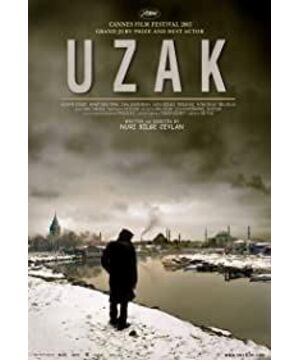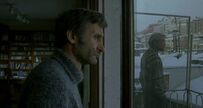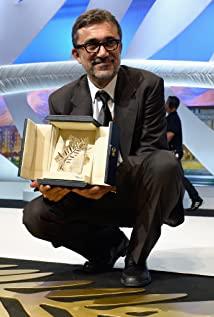I had dinner at night and went to Westgate to watch a movie with Brother Z. Ceylon's "Distant" is also the last movie of this year's Shanghai Film Festival. It’s the third Ceylon movie I’ve watched recently. It’s a lot more dramatic than "Once Upon a Time in Asia Minor" and "Hibernation". Realistic problems, alienated relationships, and broken feelings are like being stuck on a sticky mouse board at night. In the same scene as the mouse, he was unable to change and could only groan miserably. Mamm was at odds with his cousin. His mother’s illness and his ex-wife’s departure became the final fuse. He could only vent his emotions to Yosov, Ceylon. The metaphor is very clever. Mam, who hurriedly stepped on the sticky mouse board, suddenly broke the original loneliness because his cousin broke into life, but he looked down on his cousin from the country in his heart. It is different from the stories of the past in Asia Minor that left the white and dark night lights and shadows, thunder and lightning, and the grassland. Ports, cafes, and crowded places intensify the feeling of loneliness and incompatibility. Istanbul’s bustle makes the sky colder than in the wasteland. The panoramic view and long-lens motion make alienation and loneliness like snow in winter. You can’t look directly at the weeds, but they are everywhere. Yacov is shopping with a strange woman in the city, which contrasts sharply with the close-up of Yosov at the beginning. The woman lying on the bed out of focus is "stalking" the woman. Yacov is constantly breaking into the camera, the nihility pointed to by the desperate desire and desire itself.
Ceylon said that life’s loneliness is an inconsistent contradictory inner heart and huge oppression or alienation from the environment. In Hibernation, when Murakami’s young teacher and Aiden talked about plans, they probably said something, of course. You can leave a place, but you are used to it. Does the dependence on the environment come from emotions? Not, this is a chain that is constantly cut around your neck. To find yourself the "meaning of life", you set yourself up in the environment. The wind and snow in the wasteland flooded all the roads, just like the protagonist Aiden walks. Not going out is the same as people’s inner barriers are frozen and difficult to melt, and they can’t see and don’t know how to lead to mutual understanding and love. Quarreling with my sister, poor communication with his wife, blaming each other, and language weakness are like a wife trying to help the Metz family, but the "charity" is thrown into the stove. Those that can't be solved with words are like you can't expect a sum of money to save a family abandoned by life. The poetic ending "knowing that we can't reconcile as before, but the days should always try to continue" is like the end of the past in Asia Minor. It is also the end of this window (the world), feeling helpless, and the answer cannot be given...
View more about Distant reviews









